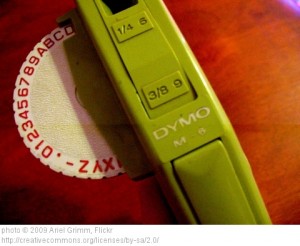 As I explain in the About Me section of this blog, I wear a number of labels that don’t always go together naturally. Like “evangelical” and “Episcopalian.” Mostly, I would like to not be terribly concerned about labels. I’d like people who claim faith in Jesus Christ to be able, willing, and eager to hang out with each other, talk to each other, and accept each other as members of the same family, no matter whether we worship in a church that’s more comfortable singing “Awesome God” from lyrics projected on an overhead screen or “Joyful Joyful” from the 1982 Hymnal.
As I explain in the About Me section of this blog, I wear a number of labels that don’t always go together naturally. Like “evangelical” and “Episcopalian.” Mostly, I would like to not be terribly concerned about labels. I’d like people who claim faith in Jesus Christ to be able, willing, and eager to hang out with each other, talk to each other, and accept each other as members of the same family, no matter whether we worship in a church that’s more comfortable singing “Awesome God” from lyrics projected on an overhead screen or “Joyful Joyful” from the 1982 Hymnal.
But now and then, I think it’s helpful to look at these labels, mostly to get at what’s underneath.
Here’s what I love about hanging with evangelicals: First, it’s partly about loving to hang around with particular evangelicals. That’s the thing. When you get to know an evangelical as a person and not as a scary label that makes us uptight Northeastern liberals run away screaming (“They talk about Jesus like he’s an actual person right there in front of them! They might start praying out loud, right in the coffee shop!”) you realize they are actually, um, people. They can be smart and funny, and love good music and wine and movies, and they’re not bubbleheads just because they talk about Jesus. So I don’t think of my evangelical friends as “evangelicals” but as fellow Christians. Besides the actual people, I love hanging with people who do talk about Jesus as if he’s an actual person (’cause you know, he actually was, and if we believe that stuff about the resurrection, is) and who can get lost in a big praise song and who are utterly cool with talking about what God has to do with everyday life, including our parenting, our money, our work, and our interactions with culture.
Here’s what I love about hanging with Episcopalians/mainliners: Because we mainliners are not quite so open in talking about our faith, I find my fellow Christians in this arena to be full of surprises. The good kind of surprises. There’s so much I don’t know about the people I worship with every Sunday. Because we’re Episcopalians and we’re New Englanders, we just don’t talk so much about mushy-gushy stuff like feelings and Jesus. But then I’ll be chatting with someone at coffee hour and I’ll find out that he or she she goes into downtown Hartford every week to tutor kids in one of the city’s failing schools, or writes really amazing music or poetry, or is thinking of going to seminary some day. And I think, “Huh. Who knew?” Plus we Episcopalians/mainliners have a good sense of history. This is helpful in the larger political/cultural arena, because we generally don’t go around trying to convince everyone that the Founding Fathers just so happened to have the exact same perspectives on gun control and prayer in the schools as a 21st-century conservative Republican. We know that just ain’t true. But also, we appreciate hymns that people have been singing for hundreds of years and the transcendent value of the sacraments; we understand that a little mystery in the life of faith is a good thing. We don’t try to put everything into words and package it into shiny pamphlets with easy reference guides in the back.
Here’s what I don’t like about hanging out with evangelicals: We have to talk about stuff like “egalitarianism” vs. “complementarianism” and “Biblical manhood and womanhood” and discuss books by people like Mark Driscoll. (If you are one of my Episcopal/mainline readers, you may be saying, “What? Who?” You can look them up if you want. But I happen to think they’re really not that important.) When idiots like this guy open their mouths, we feel a need to respond, although people like this deserve no response. They deserve to be ignored so that the rest of us can get on with the good work that Jesus asks us to do. Of course, I understand when my evangelical writer friends do respond to jerks like this guy, they’re doing it because they want to make change happen. They want jerks to no longer have pulpits from which to spew their hate.
Here’s what I don’t like about hanging out with Episcopalians/mainliners: We can sometimes be so afraid of offending that we water stuff down. I’m working with my church’s clergy to revamp our web site, and we’ve shared some stories about how particular words (notably the word “values,” which has been somewhat co-opted by the religious right, but also the word “Jesus”) can scare potential churchgoers away. As in, the word “Jesus” makes people think that we’re a bunch of Bible thumpers. Um. We’re Christians. As in, followers of Jesus Christ. Mainline churches, I think, tend to attract some people for whom going to church on Sunday is just what you’re supposed to do. There are some folk in the pews who are not particularly interested in talking about the Bible or living out our faith or what it means to be a Christian today. That bothers me not because I want to judge other people’s inner lives, but because I want to know the assurance of sitting in pews with people with whom I share at least some fundamentals of faith and faith language. That’s part of what makes church feel like home to me, knowing that I’m singing the songs and praying the prayers with people who are my people. Knowing that we are all grappling with this beautiful and brutal world with essentially the same set of tools, looking at it through the same sort of lenses. Of course, for every person who’s there mostly because our church happens to be conveniently located in our town’s thriving commercial center, there is one (or more) of those quiet surprising folks whose faith is deep but who doesn’t talk about it so much. So it more than evens out.
In dividing up my Christian connections and smacking labels on them, I realize I’m doing everyone a disservice. Labels can diminish people. We slap a label onto a complex human being and BAM, we think we understand them. The labels themselves aren’t very important. But by occasionally trying to figure out what they mean, I hope that those who are firmly in one camp or another, for whom those “other Christians” are a strange, foreign bunch of weirdos they don’t quite get, will learn to see the good stuff they’re missing by deciding that only one brand of Christianity is okay.











